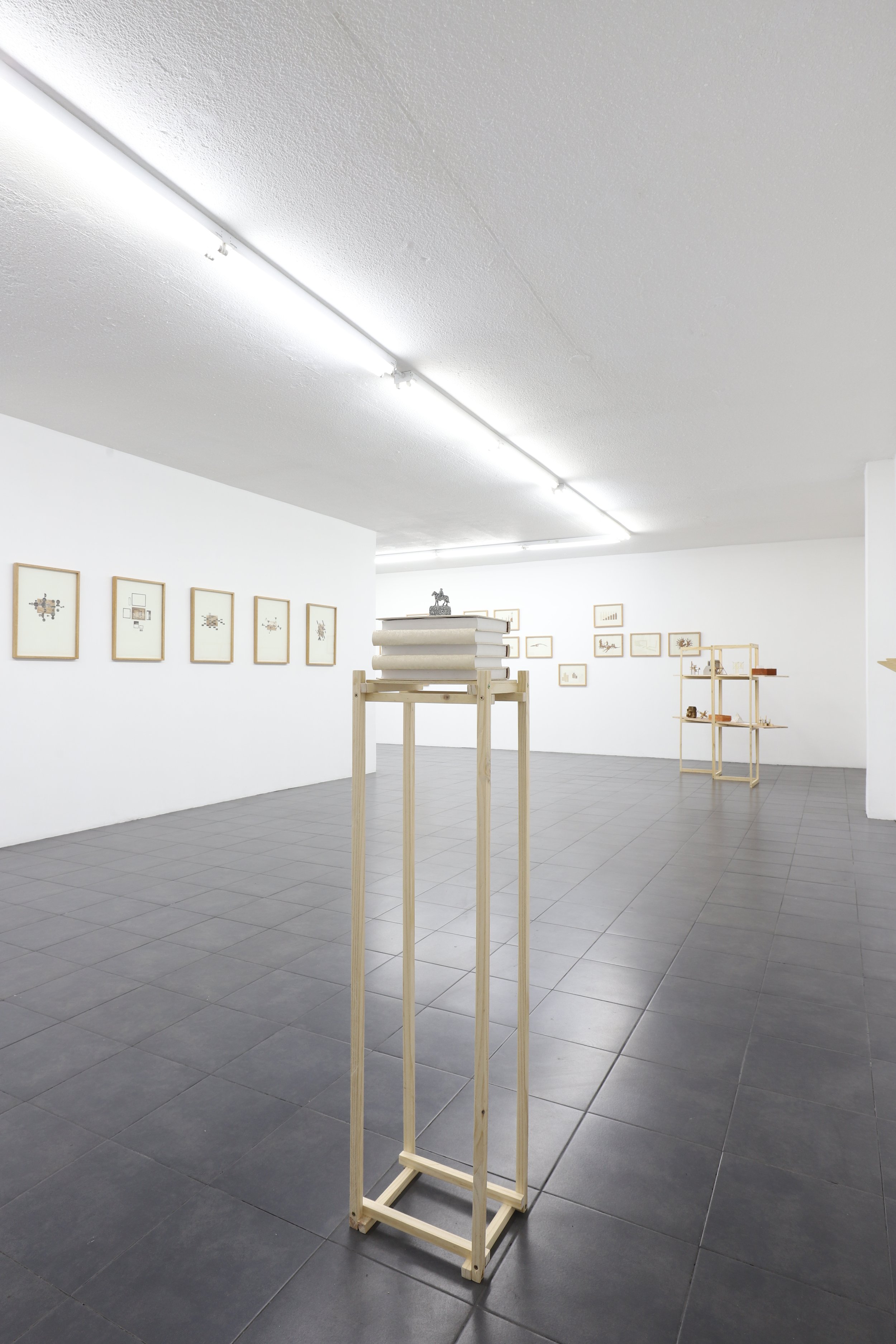NORMAN MORALES
EL ESPACIO ENTRE NOSOTROS / SIEMPRE SEREMOS MODERNOS
july 2018
EL ESPACIO ENTRE NOSOTROS /
SIEMPRE SEREMOS MODERNOS
The Space Between Us / We Will Always Be Modern
That the sense of reality is discontinuous is something that can be appreciated in a succession of different art forms. As it is a reflection of the existential relations between the human being and his circumstance, it is natural that, as the cultural context changes, the artistic forms are transformed.
If we consider this condition, the fact that the relay of different artistic styles was exhausted with the aesthetic delirium of the last avant-gardes should not surprise us. At that time, in spite of the modern yearning to determine the meaning of history, human beings ended up absolving themselves of any ideological paradigm, and thus exempting art from any kind of aesthetic dogma.
However, just as that modern illusion was beginning to dissipate, we came across a key concept to confront the contemporary landscape. La Deriva, an artistic and daily exercise proposed by a group of revolutionary artists who called themselves situacioncitas, highlighted the political power implied in moving through the city without a determined direction, in search of unknown experiences, with the aim of changing the way of seeing and experiencing urban life. A notion that, beyond functioning as a strategy to resist the capitalist dynamics of the modern city, is presented to us as a metaphor for what is probably the most determining and urgent factor to recognize in the course of history: uncertainty.
The creative process of Norman Morales (Guatemala, 1979) involves wandering in search of spontaneous experiences that generate reflections on the impact of the environment on the psyche of the individual. His interest lies in the fact that certain structures and everyday elements not only determine how we inhabit space, but also our understanding; that is, in the ideological effects of architecture and art. In this sense, it could be said, more than a concern for the way in which individuals inhabit space, his work is a reflection on how space dwells in individuals.
From intuitive displacements through the city and his encounter with the everyday, from which he obtains personal impressions, collects found objects and produces different types of models and images, Morales has produced a series of works that examine the relationship between urban space and the idiosyncrasies of societies. Pieces such as Utopia, where he seeks to express the coldness in the impersonal style of certain modern buildings, directly crafting a metaphor to the dream of a nation disenchanted by small-scale political developments and condemned to uncertainty; or Topofgrafía, where the vulnerability of a building on the edge of a cliff is seen. These are a response to the way in which the existential condition of the human being is manifested through architecture.
At the same time, responding with a creative attitude and generating a new element to the emotion produced by each situation, this exhibition is also an invitation to resist the ideological conditioning imposed on us by the collective and to establish our own relationships with the world. A clear example of this is the series of paintings Autoconstrucción, where the simple gesture of portraying and intervening the immediate environment is enough to highlight the political power of the individual.
Ironically, from a drift without a predetermined intention, Morales has managed to produce an art that properly assumes the perpetual contingency of historical events. In the face of a world without any guaranteed order, a work that invites us to assimilate the randomness of experience and avail ourselves of our individuality to produce a sense of our own identity, reminds us that art can still have its finger on the pulse of this time of uncertainty, and serve as a guide in the perpetual reconstruction of meaning.
- Diego Uribe, Bogotá, 2018.











